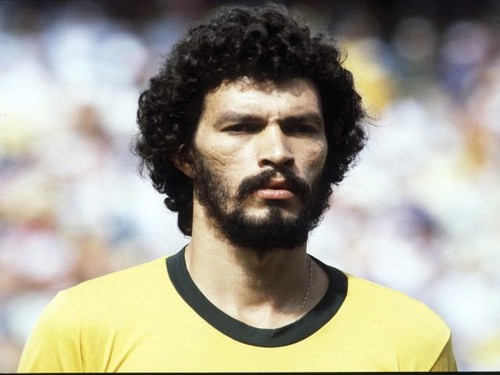
A child named like a Greek philosopher stands motionless at the scene in which his father is destroying the most precious of his treasures: his books. Knowing the secrets behind those books and understanding the thinking of men became the engine of a young man who found football the perfect setting to mix sport and ideas; joy and social commitment. This is the story of Sócrates, the footballer who scored a country on and off the court.
Sócrates Brasileiro Sampaio de Souza Vieira de Oliveira was born on February 19, 1954 in a large family in Belem, Brazil. His father, Raimundo, had a very great influence on his training. Raimundo was a profound lover of knowledge, so much so that he named three of his sons Greek philosophers. But at the same time he was a person with a great social sensitivity; and all those things he showed to his firstborn son, Socrates.
But on March 31, 1964, a coup d'état took place in Brazil that would mark the life of the young Socrates. His father, frightened by the news that people with ideas contrary to the government had disappeared, took all his books talking about communism and socialism and threw them on fire to protect his family. That image forever marked the life of young Socrates and sparked his interest in politics.
Balloon artist, philosopher of life.
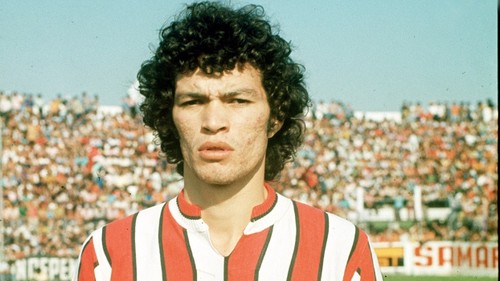
From a very young age he began to show his innate abilities for football. He entered the lower categories of Botafogo where he quickly made himself known. Finally debuted in first division in 1974, and at that time was something out of the ordinary. Everyone was impressed with his game, he played differently.
Socrates was one of those players who played more with intelligence and skill than with the physical part. He organized the plays, put his teammates in a good position, his football was intelligence and touch. But Socrates had a very particular physique and very different from that of a common soccer player. He said "I measure 1.93m, chock 37; If I have to turn to give a pass I fall. To survive in football I have to invent something". And that is how the famous back heel of Socrates was born. He developed it so as not to fall, but in his case it was not just a pass, they were true throws of up to 40 meters. During training I used to kick penalties in this way to challenge the goalkeeper and put her in the corner. Her deficiency transformed her into an element of surprise and creation, the best example of what a technical resource should be in reality.
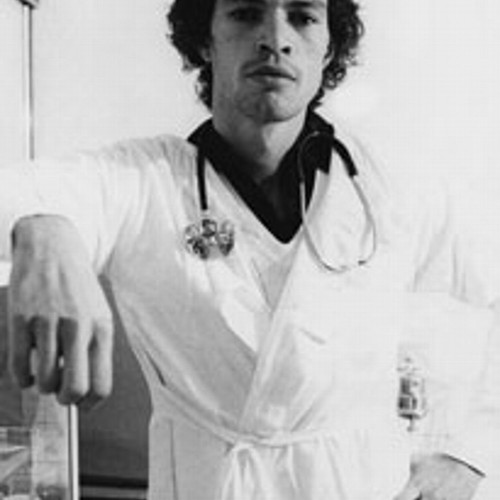
But Socrates' passion and need for knowledge was something that even soccer could not fill, so for several years he combined his life as a footballer with his medical studies at the University, until he graduated as a doctor in 1978. But Socrates was a strange student, because although he never studied he was always the best student. His relatives comment that he never took a notebook to the University, that he did not take notes, that everything held him in his head. He was very quick, very insightful, very intelligent. When the others were just beginning to reason, he was waiting for them at the end with the answer and with another.
During those years he had to combine his double shift at the University with training and games, something that a priori seems quite complicated for a normal person. Socrates' solution was very simple: he neither trained nor studied. To complete, after training he was going to drink with his friends until the bar closed. The truth is that although he abused, his body endured enough, although at the end of his life that ended up taking its toll. Socrates also trained little, he was extremely lazy. His physical preparation was zero, but the art of his football had no limit. In total with Botafogo managed to deputize 57 parties and became the top scorer of the Paulista Championship of 1976.
"The use of alcohol did not affect my career. Even because I never had physical structure to play football. (...) Football has become a profession for me only at 24 years old. (...) He was very thin, and I had no chance of having an adequate physical preparation. " - Socrates
Socrates and the people.
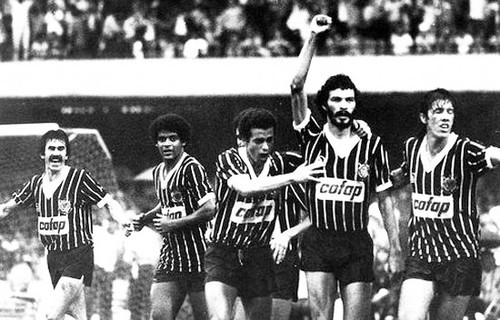
The university life made him have that ability to question everything, especially the structure of football. All that capacity was boosted by the city of Sao Paulo and by Corinthians, club for which he signed in 1978. Corinthians was the expression of the popular Sao Paulo, it is the most experienced and at the same time the most passionate fans. Socrates knew about that relationship between the player and the fans because he had a very strong sensibility. The fan, for him, was the representation of the Brazilian people. He went on to live with that great mass of people in the crowd, he went on to have an audience to tell his stories, to talk about the country. Socrates saw in Corinthians a door to expose his ideas and provoke the system.
"The best thing that football gave me was the opportunity to meet human beings, I met people who suffered a lot and I also knew the other side of society, those who have everything, I could see both sides of society in the that we live". - Socrates
Sao Paulo was fundamental for him to end up being the way he was, he made contact with a bigger city, with more complex problems. Socrates' obsession was to know more, especially to know and understand, mainly other people. He liked to interact and talk with many different people, that was his way of exchanging ideas. He used Sao Paulo as a great football stadium and there he began to politicize. The truth is that his relationship with Corinthians reinforced the role he could have as a representative of the people.
There came a time when Corinthians was immersed in a bad football moment, where the expected results did not come. And when they lost a game, the fan let the team know their dissatisfaction. In an opportunity when they lost against Guaraní in Pacaembú Stadium, the fans wanted to hit Socrates and the rest of the players when they left the bus. Socrates could not believe what happened and he refused to let it be that way.
After that game, Corinthians won a series of important matches, all with goals from him; but Socrates did not celebrate any of the annotations. In the second or third match of this streak, when the fans realized their attitude they went to look for him; They wanted him to be a participant in the joy of that moment. But Socrates said to them: "How am I going to celebrate the goals? You wanted to hit me two weeks ago, and now you want to hug me? With me it is not like that. We lose because the team goes to the rhythm of the fans, it has to be the other way around".
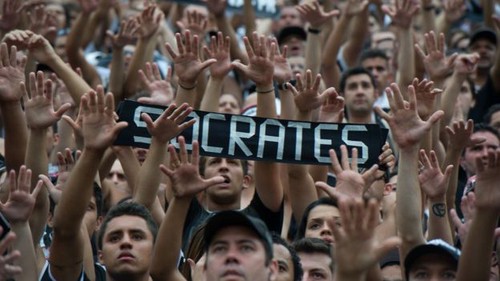
The result was that the fans began to have patience, they entered the rhythm of the team. However crazy that idea of Socrates might seem, it finally worked and that's how the fans behaved exactly as he wanted. It can be said that he was the first footballer in the world to train a whole crowd.
Socrates was the kind of person who, when he went anywhere, attracted people and listened to him. He was a tall man, erect, with a beard, with a penetrating gaze; the kind of person that impresses, someone different. He had a great talent for access and influence on his fans, a great intellectual capacity, convictions, dreams, desires for change, all that in the same person. When he spoke, the rest listened. And now its capacity would stop being limited to the Corinthians fans and would happen to be heard by a whole country.
Comments